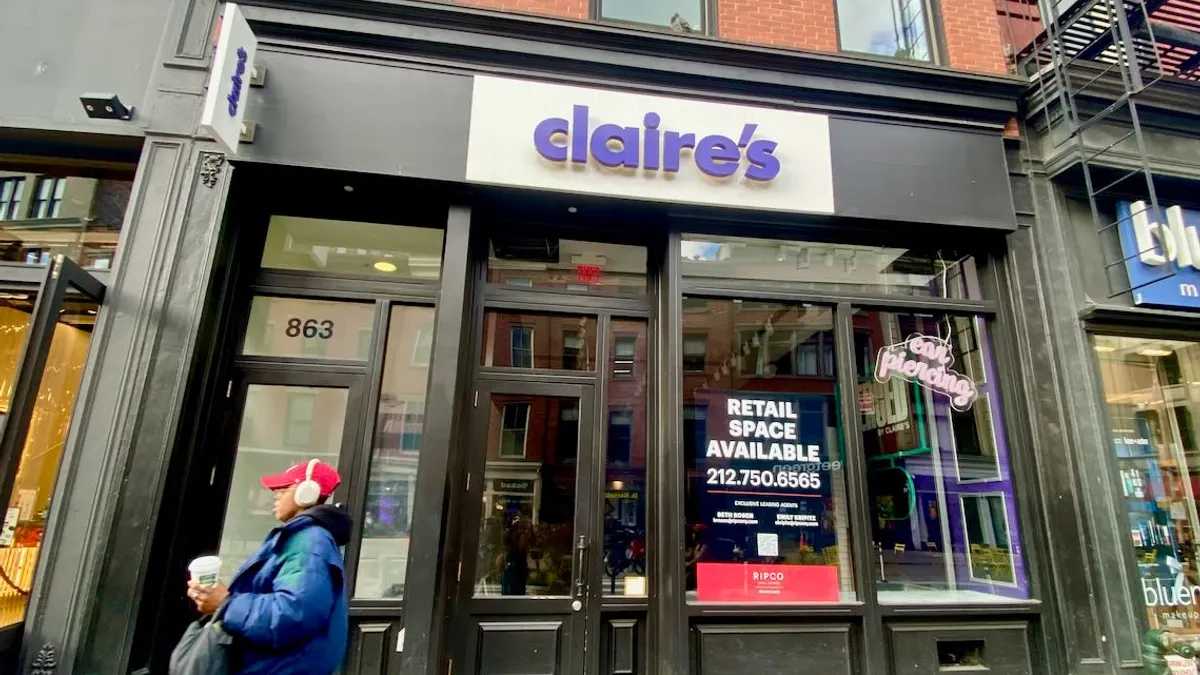While Black Friday is still weeks away, several retailers have already begun rolling out holiday promotions in an attempt to make up for this year's shortened shopping season.
Target in October announced it would offer free shipping on "hundreds of thousands of items" beginning in November and running through Dec. 21. The mass merchant touted the fact that consumers can receive such benefits with no membership required, a move that takes direct aim at Amazon's Prime membership, which costs $119 annually. Target also announced it will spend nearly $50 million more on payroll this year than it did last year, and that includes doubling the number of workers dedicated to fulfillment jobs.
On top of equipping its stores with additional personnel this holiday season, Target and other retailers are already beginning to roll out heavy discounts. While there are six fewer days between Thanksgiving and Christmas this year, the early deals beg the question of whether Black Friday carries the same importance it did years ago.
In an effort to further promote its newly expanded loyalty program, Target announced Circle members will receive special holiday perks, including early access to Black Friday deals and daily kids deals from Nov. 1 to Nov. 27. On top of that, the mass merchant on Wednesday announced a two-day Black Friday Preview Sale, which runs from Friday to Saturday, and includes deals on toys, electronics and home products both in-store and online. Walmart kicked off its holiday deals before Halloween this year, which it said was its earliest ever holiday promotion.
The holiday creep extends beyond just the mass merchants. Savings and coupon provider RetailMeNot announced its own sales holiday, dubbed Cash Back Day. The sales event, which begins at midnight on Thursday and spans for 24 hours, allows consumers to earn up to 20% cash back while they shop at "hundreds of online retailers," the company said in a press release. RetailMeNot said that consumers who earn cash back will receive their money before the holidays, possibly enticing shoppers to begin their holiday shopping earlier.
In a recent survey, RetailMeNot found that the shortened holiday season has led 14% of consumers to be stressed about being able to complete their shopping in time, and drove 28% to make their initial holiday purchase earlier.
"Shoppers are getting savvier every year when it comes to holiday preparation," RetailMeNot trends and shopping expert Sara Skirboll said in a statement. "They are deal hunting, comparison shopping, and they're choosing not to spend all their holiday budget solely in November and December," noting that more consumers began their holiday shopping in July this year. The report found that 70% of consumers that shopped on Amazon Prime Day ended up purchasing a holiday gift.
While nearly four in five consumers intend to shop deals between Thanksgiving and Cyber Monday, they won't spend as much they did in previous years.
It's been six years since Thanksgiving has fallen this late on the calendar (in 2013, Thanksgiving also fell on Nov. 28). Holiday sales that year increased 2.9% from 2012, according to the National Retail Federation. However, last year, when Thanksgiving fell on Nov. 22, which added six additional days to the shopping season, sales increased just 2.1% year over year, making it unclear just how critical those 26 days between Thanksgiving and Christmas will be for retailers this year.
The discussion forum on RetailWire asked its BrainTrust panel of retail experts the following questions:
- What sort of adjustments (if any) should retailers make this year for the shorter traditional holiday season?
- Do you largely agree that earlier promotions and online selling nullify the impact of the six fewer days?
Here are eight of the most insightful comments from the discussion. Comments have been edited by Retail Dive for length and clarity.
1. In-store fulfillment may prove most beneficial to shoppers this year
Carol Spieckerman, President, Spieckerman Retail: I expect click and collect to become more important, especially after Thanksgiving, when shoppers start counting the days. If retailers reinforce this sense of urgency, customers should snap to attention. The shorter selling season could be positive overall with no need for overt compensation beyond promotional time shifts. Retailers will need to plant a sense of urgency early on, then reinforce it after Thanksgiving, when the rubber meets the road. Overall, retailers may benefit from this more consolidated time frame. It will allow them to get a clearer read on demand, earlier, if they play it right. Either way, this holiday season will serve as a great learning opportunity.
2. Shoppers will buy gifts regardless
Neil Saunders, Managing Director, GlobalData Retail: The shorter selling season might be unhelpful for some discretionary categories where impulse buying is prevalent. However, overall I don't see it as having an enormous impact on total spend: People will still buy gifts, food and other things for the various occasions; and the amount they spend will be largely governed by their confidence, finances and the quality of the offer in stores and online.
3. The timing of Black Friday is becoming less relevant
Jeff Sward, Founding Partner, Merchandising Metrics: There was a time when Black Friday was truly the kickoff to holiday shopping, and six less days between Thanksgiving and Christmas was a big deal. That time is now ancient history, with Black Friday promotions creeping well into early November. One could arguably say that Halloween is now the kickoff. A well-crafted promotional calendar and a well-balanced mall and e-commerce business should be able to offset any anomalies in the calendar. Let's keep score. Who will perform well in spite of the calendar and who will blame the six lost days for soft holiday results?
4. Early promotions could hinder retailers
Ken Morris, Retail industry thought leader: The excitement of Christmas shopping is diluted when retailers begin promotions too early. A sale is only effective when there is some urgency to buy. For instance, a back-to-school sale on backpacks in June is not going to be enough to incentivize the buyer to purchase early.
One of the key factors to successful selling in a brick-and-mortar store is the entertainment element. If a store creates a pleasant and exciting experience, customers will come, but not too early.
Online shopping is a fact of life and one-day shipping is the norm so to compete, stores must be creative in their presentations and customer service must be excellent. Six fewer days in the shopping season does not mean you should start promotions early. It means you need to focus on creativity and service within the six weeks preceding the holiday.
5. The Dec. 25 Christmas shopping deadline remains consistent
Georganne Bender, Consumer Anthropologist, Kizer & Bender Speaking: Christmas is always on December 25th, so consumers have a clear drop-dead shopping date. I don't think the six days less will affect the big-box stores as much as it will indies; These retailers will have to up their promotional game to stay in front of customers and get their fair share of holiday sales.
But I do not think that early promotions will make the holiday less significant. The golden quarter is still, and will always be, critically important to retailers.
6. E-commerce is making the length of the season obsolete
Brandon Rael, Director, Alvarez & Marsal: The shorter season should not be a concern at all. We live in a commerce 24/7 world, so the length of the holiday season, as well as the significance of Black Friday, is not as meaningful as it used to be. Retailers are taking a far more aggressive, proactive stance in October, which was traditionally all about Halloween. Yet now we are seeing holiday promotions, store setups, and advertisements far earlier than we have seen before.
Retailers have always had to be resilient, agile, and flexible enough to adjust for shifts in the calendar and selling season. With the lines blurring between the physical and digital worlds, BOPIS has emerged as a key differentiator to not only drive sales across channels, but to help to mitigate the last-mile challenges associated with a shorter holiday season.
7. The shortened season will be used as an 'excuse' for poor sales results
Rob Gallo, Chief Marketing Officer, Impact 21: The shorter holiday season will absolutely be used as an excuse for those retailers that report disappointing results. We will be hearing much more about this in January and February than we will between now and Christmas. There's more than enough time to connect with shoppers and meet their needs.
8. Consumer sentiment and the economy are more critical
Ralph Jacobson, Global Retail & CPG Sales Strategist, IBM: Overall seasonal performance relies far more upon the economy and consumer sentiment than when the holiday falls during the week. Market your stuff hard, and you'll win.























